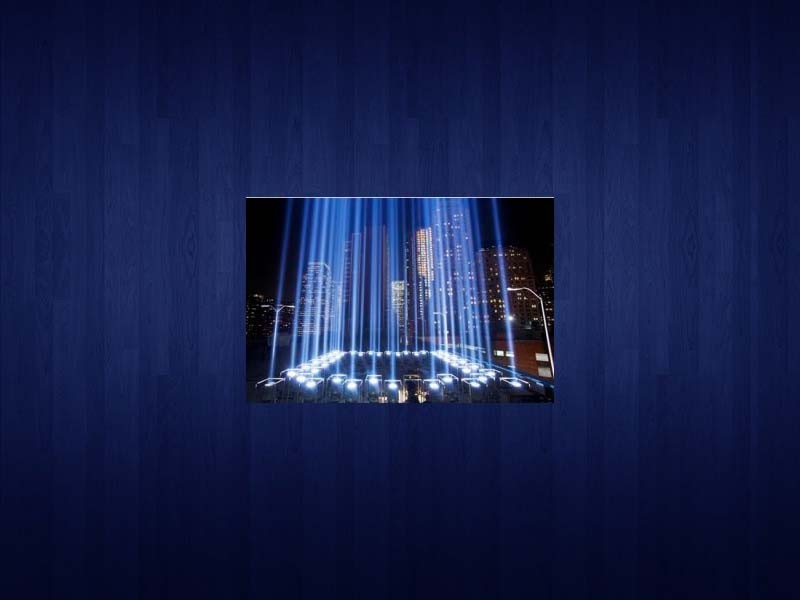There is no doubt that life changed for every American on September 11, 2001.
Some areas of daily American life changed seemingly overnight; others changed over time as the War on Terror got underway.
There are five areas of life that have changed in some way since the 9/11 attacks; some changes are obvious, while others happened without much notice.
Air travel
When terrorists boarded the four planes used in the attacks on September 11, airport security was much more relaxed compared to current standards.
According to History.com, prior to 9/11 people did not need a ticket to get past the airport gate. No one checked identification before a passenger boarded the plane, the only items removed from pockets during a security check was loose change, and checked baggage was not scanned.
In response to the attacks, the Transportations Security Administration was formed in November 2001. The TSA was tasked with tightening travel restrictions, specifically air travel, according to Edward Mienie, executive director for Strategic and Security Studies at the University of North Georgia.
“The TSA was mandated with developing and implementing policies to ensure the safety of our nation and our people through securing our transportation systems…namely airport security and flying in general,” said Mienie.
Mienie said the TSA’s policies post-9/11 include scanning all bags before they ever reach a plane. Certain items, like sharp objects and liquids more than 3 ounces, are prohibited.
In addition, travelers are required to show a ticket to go past the airport gate, take off their shoes to go through security and have their identification scanned.
Inside of the plane, reinforced doors now protect pilots from potential hijackers. Mienie said pilots are allowed to arm themselves, as well, through the Arming Pilots Against Terrorism Act.
Some of the TSA’s security procedures are preemptive, as well. In order to pass a TSA pre-check for a flight, according to Mienie, travelers must provide their biographical information, fingerprint and citizenship status.
Mienie said the TSA is in the process of implementing some additional security features, as well.
“The TSA is also testing a next generation of enhanced, advanced imaging technology for checkpoint security,” said Mienie.
Increased surveillance
Almost immediately after the 9/11 attacks, Congress passed the USA PATRIOT Act. According to History.com, the act was intended to root out potential terrorists in the country by giving intelligence agencies power to search someone’s library records and internet search history.
Agents could also search an individual’s home without notifying the owner and wiretap a phone.
While critics of the act claimed it encroached on American’s privacy and civil liberties, especially following news in 2005 that the Bush Administration had been wiretapping for four years, Mienie said the act expired last year. It has not been renewed yet.
More legislation has been passed since 9/11 to permit increased surveillance, including the FISA Amendments Act in 2008.
Mienie said with modern communication comes an expectation for Americans to be increasingly monitored.
“You take these big tech companies they are surveilling us already the moment our fingers touch a keyboard or any electronic device, on any social media platform,” said Mienie. “We are in a surveillance state and for a purpose. The purpose is to protect our national security interests and to respect at the same time the privacy of individuals.”
Rise in military enlistment
In the weeks following 9/11, Americans came together in displays of patriotism, pride and mourning for those who lost their lives in the attack.
Others felt compelled to get involved and join in the War on Terror.
According to information from the United Service Organizations, 181,510 Americans enlisted in the ranks of active service and 72,908 joined the enlisted reserves in the year following 9/11.
“That increase came about because 9/11 inspired them to do so,” said Mienie. “In the families of these active duty service members, there were parents that had served as well, so that also served as an impetus. But there was surge for sure after 9/11.”
New vocabulary
Prior to 9/11, terms such as ‘extremism’, ‘War on Terror’ and ‘sleeper cell’ were not used, at least not in the frequency they are today and not by the average American.
Even the term ‘9/11’, the date of the attacks, was unlike any other date on the calendar.
As Mienie points out, some terms had been used before 9/11, but became more synonymous with the terrorist attacks than the original context.
“‘Homeland’ is a new term, as in the attack on the homeland, hence the Department of Homeland Security,” said Mienie. “‘Ground Zero’ is another term that was introduced…it was referenced during the Manhattan Project when we built our first nuclear bomb.”
News coverage
Americans watched live television in horror on the morning of 9/11 as two hijacked planes struck the World Trade Center.
However, as news coverage around the country shifted to international news following the attacks, some domestic stations opted not to show footage of the second plane hitting the second tower, according to Insider.com.
The reasoning behind this decision was to prevent disturbing viewers, which drew criticism from some consumers.
“Let’s place ourselves in the shoes of the families of the victims of 9/11,” said Mienie. “Viewing that on national television just reopens the wounds, so I think out of respect for these people, we should rethink showing these images. Or certainly show it within the context of this is what happened.”
Mienie said that does not mean footage of 9/11 needs to be removed entirely, especially for the upcoming 20th anniversary.
“It’s good to revisit those images now that we are coming up on the 20th anniversary of that event, but not to belabor the point too much,” he said. “I think there’s needs to be a balance between not showing and showing too much.”









